Interiors (1978)
“She has no direction; I expected such great things from her.”
|
Synopsis: |
|
Genres, Themes, Actors, and Directors:
Response to Peary’s Review: He writes that “what’s most impressive about Allen’s film is that he creates a logic for why his characters respond to each other as they do”; even if we don’t particularly enjoy watching these sisters (and Keaton’s dissatisfied husband) wallow in their sorrows — and find the “snobby pretentiousness” of their “criticism of books, plays, [and] articles” unbearable — they’re indisputably all-too-human. Indeed, with a mother like Page — who during the film “suffers a breakdown and attempts suicide”, yet was clearly mentally unhinged long before the action begins — it’s no surprise at all to see what a mess Keaton et al. are (nor to question the desire of Marshall to get out of the marriage as gently yet quickly as he can). Page’s tragic performance is note-perfect, as is Marshall’s — though arguably the most memorable “older” performance is given by Stapleton, “whose bright clothes are a jolt to the picture”, and who “brings life to the drained group”. Peary notes that a final scene involving Stapleton and Hurt (which I won’t spoil here like Peary does) is the “most special” moment for him, in a film filled with “many emotionally devastating moments”. To that end, how well you ultimately respond to Interiors depends largely on: a) your willingness to suspend preconceived judgments about what a Woody Allen film “should” be, and b) your willingness to invest in the outcome of these (mostly) not-very-likable characters. For my part, I was resistant at first (as Peary notes, it’s still far “too serious” a film), but quickly found myself caught up in the power of Allen’s uncompromising vision. Good for him for daring to make a movie just the way he envisioned it, and to foil his fans’ expectations. Redeeming Qualities and Moments:
Must See? Categories
Links: |
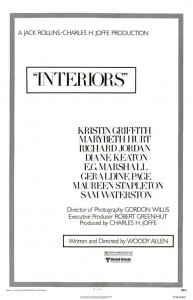
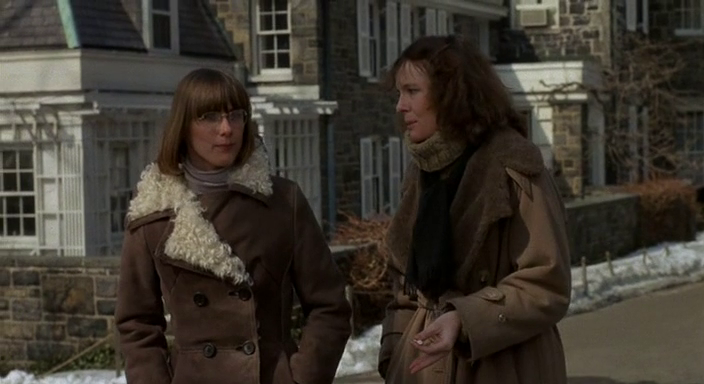
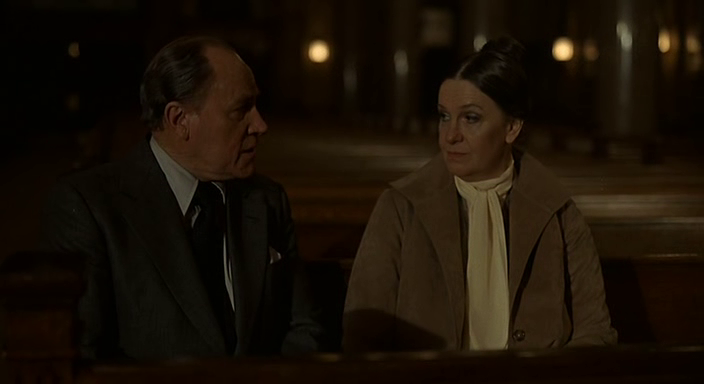
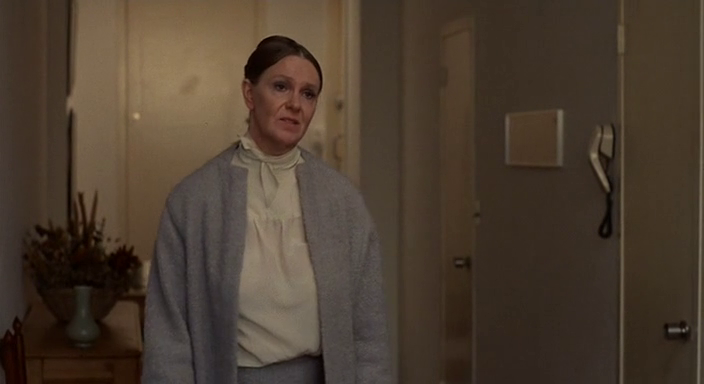

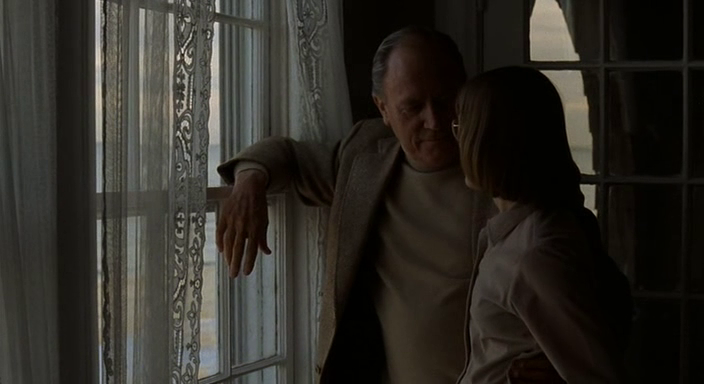
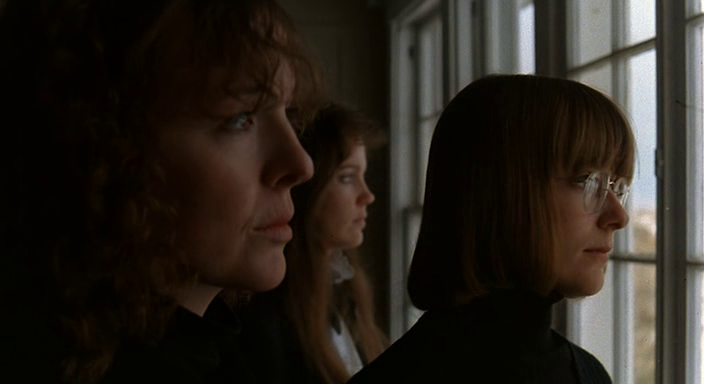
One thought on “Interiors (1978)”
A once-must, as Allen’s tribute to Bergman and for the performances.
It’s no secret that Allen is a confirmed Bergman fan. And this film does read to me as ‘payback’. It also does read as a dry-run for ‘Hannah and Her Sisters’, sans jokes. (And, as I mentioned in my ‘HAHS’ post, I still do wish I could see what Allen would do with three sisters who are simply zany and love each other’s company – cause I think he could’ve done it justice; alas, something we’re probably not going to see.)
Most of the characters here are just as annoying and inept at communication as those in ‘HAHS’. However, there’s a difference here since mental illness is involved. (Hurt says it early on to Waterston: “She’s a sick woman.”) So our tendency is to be more forgiving since, as brilliantly played by Page, Mom is a sinking ship almost determined to take everyone down with her (if they’re not going to be as obsessive/compulsive and passive/aggressive as she is). Of course, everyone around her is too strong for that – even if they have all been considerably damaged by what Page’s character has engineered for years. (What kind of woman would say to her child, “Would you please not breathe so hard!”?)
This is where Marshall’s character is particularly interesting. Clearly, the man fell in love with perception – not realizing he fell in love with ‘Martha Stewart’. And that kind of thing does so often happen. All the things you think you love about a person can take an awful turn when you realize your perception was faulty. Of course, it’s to his credit that Marshall’s Arthur stays in the marriage until the children are settled. But, by that time, it’s too late. The house of cards will not fall; someone will put a match to them.
It’s immensely helpful to the film that (along with Marshall) Waterston and (the very refreshing and wonderfully earthy) Stapleton are on-board as the voices of reason. Reason is very much needed in this scenario. Under Mom’s tutelage, her daughters have become emotional train wrecks. This, of course, makes the film a draining experience – but, again, you find yourself just feeling awful for what has happened to most of these characters. Everything has come to a head and there’s no way out (of the interiors).
I remember when I first saw this film. (Funny how I often recall the circumstances of first viewings of Allen films.) The guy I was seeing at the time was probably the first guy I knew who was a genuine bisexual. And a real jokester. We didn’t go into the film blind. We knew it was Allen taking a 180-degree turn after ‘Annie Hall’. I recall us coming out of the film really liking it (or, I should say, appreciating it). I recall Robert holding off on the jokes to say he respected Allen for doing something so different. At the time, I was a huge Bergman fan myself. So I respected Allen for it as well.
Most memorable sequence: Mom’s first suicide attempt – the piercing sounds of the masking tape!